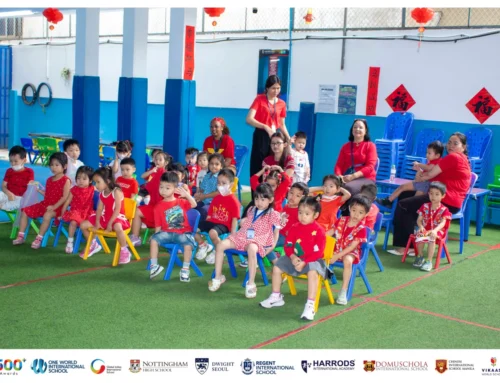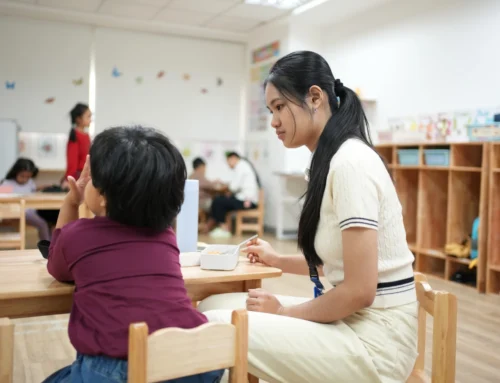In many Cambodian families, play is often seen as something children do “after learning.” But modern research—and quality early education programs—tell a different story: play is learning. Understanding the role of play in early childhood education can help parents and educators support a child’s development in meaningful ways.
In this blog, we explore why play is more than just fun and games, and how it shapes the minds and hearts of young learners across Cambodia.
What Is Play-Based Learning?
Play-based learning is an approach where children explore, experiment, and engage with the world through guided and free play activities. In preschools across Cambodia, this could include:
-
Building with blocks
-
Role-playing with dolls or costumes
-
Drawing, painting, or storytelling
-
Outdoor games and physical movement
-
Exploring nature or sensory bins
These experiences aren’t just entertaining—they help children develop essential skills for life and school.
Cognitive Development: Learning Through Exploration
When a child builds a tower, sorts colors, or pretends to run a shop, they are doing far more than passing time. They are learning:
-
Problem-solving and critical thinking
-
Basic math concepts like counting and measurement
-
Language and communication skills
-
Decision-making and cause-and-effect reasoning
In Cambodia, where rote learning is still common in some schools, play introduces curiosity, questioning, and creativity—skills that are key in the 21st century.
Social and Emotional Growth
Group play teaches children how to share, take turns, resolve conflicts, and express their feelings. Through play, children:
-
Build empathy and cooperation
-
Learn to handle emotions and frustrations
-
Develop leadership and negotiation skills
Preschools that offer both structured and unstructured playtime give children the freedom to explore relationships and practice emotional regulation in a safe space.
Physical Development and Motor Skills
Climbing, jumping, drawing, or threading beads during play strengthens both gross and fine motor skills. Physical play also helps children understand spatial awareness and body control—critical for self-help tasks like dressing, feeding, and writing.
In Cambodia, where outdoor space may be limited in some urban preschools, even simple movement games indoors can support physical development.
Language and Imagination
Pretend play allows children to invent stories, use new words, and take on different roles. This strengthens vocabulary, sentence formation, and comprehension. A child pretending to be a teacher, doctor, or chef is using imagination to connect ideas with language—laying the groundwork for reading and writing.
Play in Cambodian Early Childhood Classrooms
While traditional education in Cambodia has focused heavily on memorization, many early childhood programs are now embracing child-centered, play-based approaches. Parents should look for preschools that:
-
Provide daily opportunities for play and exploration
-
Have safe and engaging materials like puzzles, toys, and books
-
Encourage teacher-facilitated play with clear learning goals
-
Value both Khmer culture and creative expression
Play is not a break from learning—it is how young children learn best. When parents and teachers recognize the value of play, they empower children to grow socially, emotionally, physically, and intellectually.
If the information about the school is not accurate and insufficient, Contact us.
Do you want to register your school? Click here.







